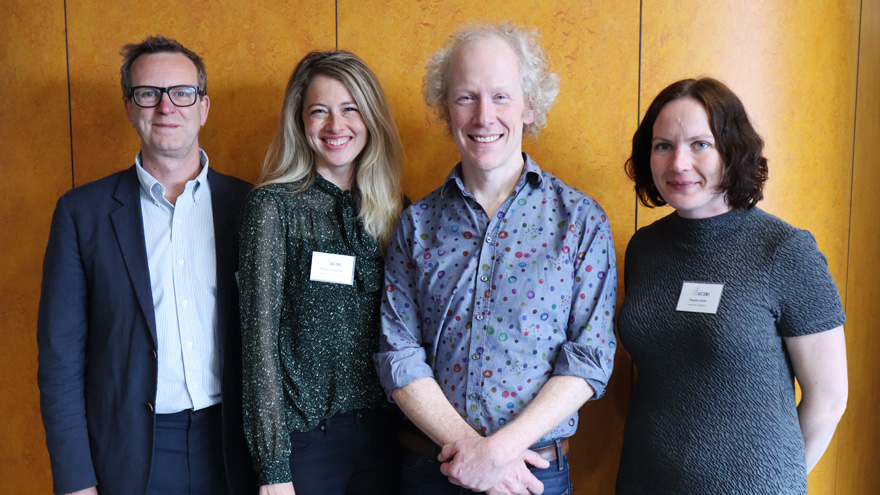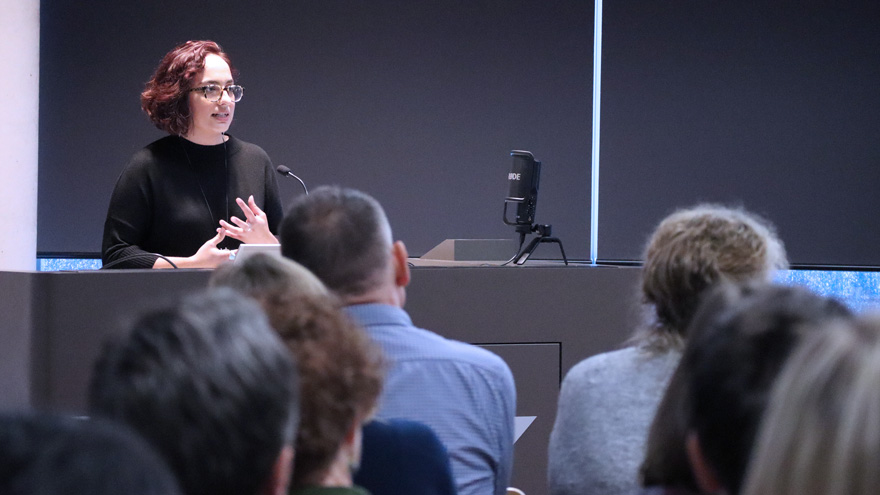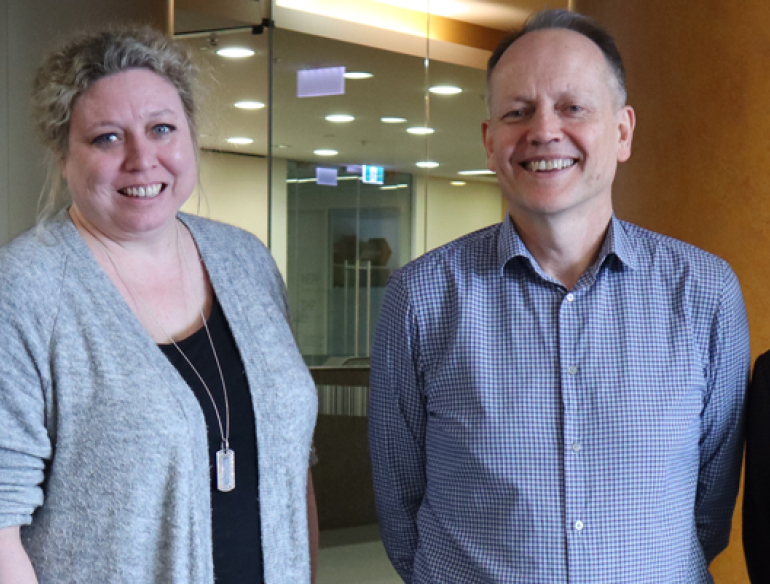The Kirby Institute, in collaboration with the National Drug and Alcohol Research Centre (NDARC), have hosted the first meeting of the new ASCEND Program Grant, an innovative new partnership designed to address issues of drug dependence and hepatitis C in unison.
The meeting was attended by global leaders in the hepatitis C elimination effort, who shared information about their experiences across a range of countries, including the USA, UK, Iran and Australia.
In 2018, the Kirby Institute and NDARC were awarded $9 million by the National Health and Medical Research Council for the five-year research program, named ‘Advancing the health of people who use drugs: hepatitis C and drug dependence’, or ASCEND. The program will work closely with people who inject drugs to better understand drug dependence, in order to build our collective understanding of the key health issues affecting these individuals and communities.
 Contingent from University of Bristol L–R: Professor Matthew Hickman, Dr Natasha Martin, Professor Peter Vickerman, and Dr Hayley Jones.
Contingent from University of Bristol L–R: Professor Matthew Hickman, Dr Natasha Martin, Professor Peter Vickerman, and Dr Hayley Jones.
The symposium was the first meeting of Chief Investigators and collaborators. Researchers gathered to examine the current situation, using data from a range of studies around the world aimed at eliminating hepatitis C.
“We have worked collaboratively in the global hep C elimination effort, so this was a wonderful opportunity to get together and lay the groundwork for our ambitious research task. At its core, ASCEND is about ensuring that we approach drug dependence and hepatitis C elimination from an evidence-based, human rights perspective,” says Scientia Professor Greg Dore, Head of the Kirby Institute’s Viral Hepatitis Clinical Research Program.
Highly curative hepatitis C treatment has been available through the Pharmaceutical Benefits Scheme (PBS) in Australia since 2016, and evidence indicates encouraging uptake among people who inject drugs. Achieving hepatitis C elimination, however, will take enhanced efforts to engage with marginalised populations, including people who inject drugs and people who are incarcerated. For many, the stigma associated with drug use remains a challenge to effective engagement and care. The ASCEND program is also set to explore the effectiveness of drug dependence management, evaluate innovative strategies to test for hepatitis C, and monitor the relationship between drug dependence and hepatitis C in Australia.
Researchers presented on a range of different studies and treatment models undertaken in Iran, the UK and USA, to compare the effectiveness of different strategies across a range of contexts. Associate Professor Natasha Martin from the University of California, San Diego outlined how harm reduction strategies in the USA are lacking amidst the country’s opioid epidemic, leading to a situation where risk is high for both initial hepatitis C infection and re-infection following treatment.
 Dr Maryam Alavi, Kirby Institute.
Dr Maryam Alavi, Kirby Institute.
Participants in the meeting also heard from Professor Peter Vickerman from the University of Bristol, looking at modelling the cost of achieving hepatitis C elimination in Pakistan, as well as the Kirby Institute’s Dr Maryam Alavi, who is leading the ENHANCE study, an intervention to improve hepatitis C testing, linkage to care, and treatment among people who use drugs in Tehran, Iran.
Professor Michael Farrell, Director of NDARC, discussed an alternative injectable treatment for opioid dependence (depot-buprenorphine), which requires the patient to attend the clinic less frequently (weekly or monthly injections), and has the potential to improve retention in treatment and reduce harm.
“The public health response to drug use is often clouded by questions of morality and judgment. But the only questions we should be asking are: how can we better understand the health needs of this group, and what can we do to address these needs,” says Professor Dore. “We look forward to continuing to work with our colleagues at NDARC towards filling this critical gap in the hepatitis C elimination effort in Australia.”
Header Image
L-R: Professor Andrew Lloyd (Kirby Institute), Scientia Professor Louisa Degenhardt (NDARC), Scientia Professor Greg Dore (Kirby Institute), Professor Michael Farrell (NDARC).
